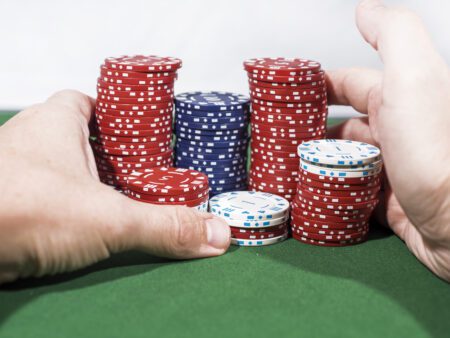Discover the psychology behind slot machine design and learn how casinos manipulate players to keep them hooked. Take control of your gambling habits with this insightful article.
The Psychology of Slot Machine Design: How Casinos Manipulate Players
Introduction
Slot machines are the bread and butter of the casino industry. With their flashy lights, exciting sound effects, and the promise of big wins, they draw in millions of players worldwide. But have you ever wondered why these machines are so addictive? In this article, we will delve into the psychology behind slot machine design and uncover the tactics that casinos use to manipulate players.
The Power of Rewards
One of the key elements of slot machine design is the use of rewards. The human brain is wired to respond to rewards, and slot machines take advantage of this by providing regular wins, even if they are small. These small wins create an illusion of progress and keep players engaged. Psychologically, the brain releases dopamine, a feel-good chemical, every time a reward is received. This creates a pleasurable sensation that encourages players to keep spinning the reels.
However, the intermittent nature of rewards is what makes slot machines so addictive. Unlike other forms of gambling where the reward is directly related to the effort or skill involved, slot machines operate on a random number generator (RNG) that determines the outcome of each spin. This unpredictability keeps players hooked, as they never know when the next big win will come.
The Role of Lights and Sounds
Slot machines are designed to captivate players with their visual and auditory stimuli. The flashing lights, colorful graphics, and catchy sound effects create a sensory overload that enhances the gambling experience. These elements are carefully optimized to create a sense of excitement and anticipation.
For example, the spinning reels of a slot machine create a hypnotic effect that mesmerizes players. This, combined with the anticipation of winning, triggers the brain’s reward system, leading to an increased release of dopamine. The lights and sounds also serve as cues that reinforce the association between winning and positive emotions, further fueling the addictive nature of slot machines.
The Illusion of Control
Another psychological trick employed by casinos is the illusion of control. Slot machines often offer features that allow players to make choices, such as selecting the number of paylines or triggering bonus rounds. However, these choices have no real impact on the outcome of the game. The predetermined RNG determines whether a player wins or loses, regardless of their selections.
By giving players the illusion of control, casinos tap into the human desire for autonomy and empowerment. This sense of control creates a false sense of skill, making players believe that they can influence the outcome of the game. This, in turn, keeps them engaged and willing to spend more money.
Maximizing Time and Money Spent
Casinos also employ strategies to maximize the time and money players spend on slot machines. One such strategy is the use of near-misses. These are instances where the reels stop just short of a winning combination. Studies have shown that near-misses trigger a strong motivational response, similar to actual wins. This encourages players to continue playing in the hope of achieving a win in the next spin.
Furthermore, casinos often place slot machines in high-traffic areas or near other highly stimulating games. This increases exposure and entices players to try their luck, especially when they see others winning. Additionally, many casinos offer loyalty programs and bonuses that incentivize players to keep coming back.
Taking Control of Your Gambling Habits
Understanding the psychology behind slot machine design can help you make informed decisions and take control of your gambling habits. Here are some tips to keep in mind:
- Set a budget: Before you start playing, decide how much money you are willing to spend and stick to it. Avoid chasing losses or increasing the amount of money you planned to gamble.
- Take breaks: Slot machines are designed to be highly engaging and addictive. Take regular breaks to give your brain a chance to reset and make rational decisions.
- Play for fun, not for profit: Treat slot machines as a form of entertainment rather than a way to make money. Set realistic expectations and enjoy the experience without putting too much emphasis on winning.
Conclusion
Slot machines are carefully designed to exploit the human brain’s reward system and keep players coming back for more. By understanding the underlying psychology, you can make informed decisions and maintain control over your gambling habits. Remember to play responsibly and prioritize fun over profit. The allure of the slot machine may be strong, but with the right mindset, you can enjoy the game without falling into the trap of addiction.










